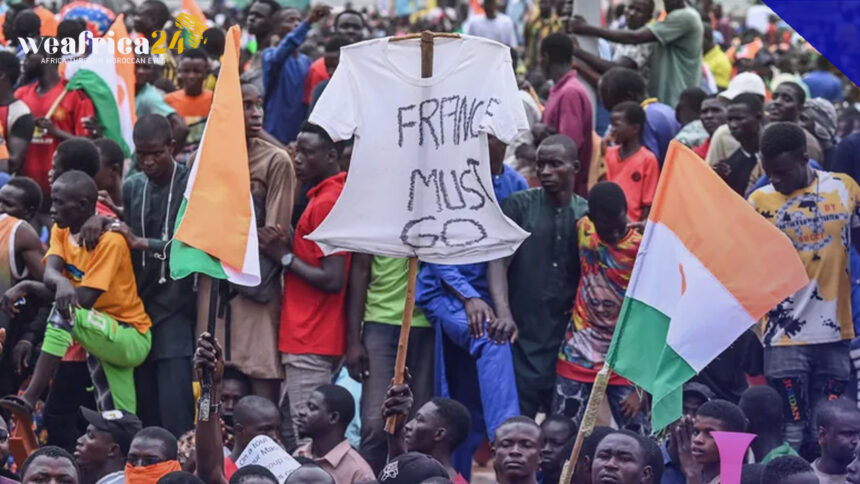In recent times, anti-French sentiment has been on the rise in several West African nations due to public campaigns against French presence, as well as the evolving policies of new regimes established after recent coups in Mali, Burkina Faso, and Niger. Analysts argue that Paris no longer possesses the traditional tools of influence to secure its presence in the region.
As France strives to defuse these campaigns through its “Equal Partnership” strategy, experts question the viability of this new approach. Recent events indicate that former French colonies are leaning toward new alliances driven by economic interests, a shift that resonates strongly amid the region’s social and political transformations.
According to Abhishek Mishra, Associate Fellow at the Observer Research Foundation’s Strategic Studies program, the intensifying anti-French sentiments in several West African countries have prompted Paris to distance itself from its previous approach towards the continent. Instead, it is adopting a new strategy focused on forging security partnerships rather than direct intervention, which has been its long-standing policy.
This new approach entails a significant reduction in French forces and bases in the region. While the rapid shift in allegiance towards France may seem surprising to some analysts, others find it natural given the significant demographic changes the region has undergone in recent years. The rise of the youth demographic, constituting over 55% of the population, has led to a reevaluation of France’s role in the region. Additionally, geopolitical shifts have accelerated with increased Russian presence in the region since the mid-2000s and growing public sentiment against French presence.
Mett Bjerges, a researcher at the Paris Institute of Political Studies, believes it’s not too late for France to reconsider its approach. He notes that while anti-French sentiments may not pose an immediate threat, they reflect deep skepticism regarding France’s policies in Africa.
Bjerges emphasizes, “The anti-French sentiment doesn’t present a real threat to France at the moment, but it does signify a profound doubt in its African policy.” He further points out that France possesses various economic and diplomatic leverage tools that allow it to redefine its position in West Africa.
The Economic Factor
Widespread belief suggests that the increasing public resentment towards French presence in West Africa primarily stems from economic neglect. The collective share of West African countries in France’s foreign trade is less than 2%, with French investments in these nations accounting for only 1% of its total foreign expenditures. Accusations of France continuing to stifle African economies have fueled demands to end its presence in the region.
The CFA Franc agreement binds the African countries using it, currently 12 nations, to deposit 50% of their cash reserves in French banks. Additionally, these countries print their currency in France. This arrangement generates significant annual returns for France, which claims to have ensured its presence in the region through various binding agreements that have generated substantial revenue through investments in natural resources. In return, African nations have received military and developmental assistance, the adequacy of which has been subject to significant debate.
In this context, Abubakar Mwazu, a media professor and coordinator of the Diplomatic Studies Center at Majdouga University in Niger, asserts that France has long retained its colonial-era instruments, which have exacted significant economic, political, and social tolls on the countries in the region. While these nations have endured the status quo for decades by accepting the legacy, recent events suggest a shift towards genuine independence.
However, Mwazu is cautious about the prospects of new alliances forming in Mali, Burkina Faso, Niger, and other African countries. He suggests that the correct approach for these African nations amidst current changes is to re-engineer their foreign policies, fostering self-reliance and ending dependency. This would involve shifting allegiance away from France, or any similar power, towards alternative partners while maintaining control over their resources.







